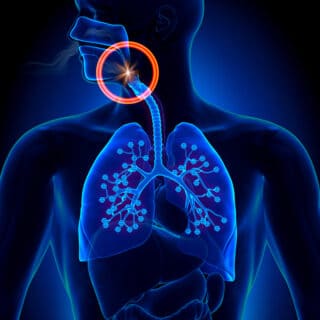
Dynamic Dental Wellness
20755 Williamsport Place
Suite #300
Ashburn, VA 20147

More Dental Health Articles
Sleep, Metabolism, Heart Health and Oral Health

Sleep apnea is more serious than just missing a restful night of sleep or snoring. There is a strong connection between sleep, metabolism, heart health and oral health. Research in the last decade shows evidence of sleep apnea increasing risk of heart disease and diabetes.
Sleep plays an integral part in our healing process.
Here are a few signs of sleep apnea, often times noticed by a partner or sleep study:
- Snoring
- Long pauses in breathing during sleep
- Gasping for air during sleep
- Awakening with a dry mouth
- Morning headache
- Difficulty staying asleep
- Excessive daytime sleepiness
- Waking feeling tired
Sleep Apnea
Sleep apnea is the repeated stopping of airflow for at least 10 seconds during sleep. Hypopnea is the decrease (30%), but not complete stop, of airflow which results in a greater than 3% oxygen desaturation. Patients with sleep apnea continuously go from breathing cessation (or reduction) into hypoxia which leads to a startle response and awakening from sleep then slipping back into sleep before starting the process over again. Having 5-15 events an hour is considered mild and more than 30 such events is considered severe.
Obstructive sleep apnea (OSA) and upper airway resistance is a result of physiological and anatomical conditions of the upper airway passages which cause soft tissues to fall back into the throat blocking the trachea and reducing or blocking airflow.
OSA and Oral Health
Most patients with sleep apnea have inflammation of the gums and heavy wear on their teeth. They usually have had several crowns and root canals due to heavy bruxism associated with sleep apnea. Many of these patients also suffer from TMJ or jaw joint disorder. Forward head posture and mouth breathing could be other conditions that coexist for patients suffering from sleep apnea.
OSA and Heart Disease
According to studies, the repetitive cycling between hypoxic and re-oxygenation selectively activates vascular inflammatory pathways that lead to scarring of the lining of blood vessels (called endothelial dysfunction) and blood vessel hardening (atherosclerosis). The startle response or the arousal that occurs in response to hypoxia causes repetitive spikes in the sympathetic nervous system and surges in blood pressure. This along with the mechanical effort to overcome the obstruction, causes a loss in cardiac output and decreases in cerebral blood flow.
OSA increased the risk of transient ischemic attacks (TIAs), stroke, atrial fibrillation, myocardial infarction, incident congestive heart disease, heart failure and death.
OSA and Diabetes
Studies have shown those with the highest HbA1C levels (a form of hemoglobin that is chemically linked to a sugar) also tended to have more severe OSA. Furthermore, those with OSA tended to have significantly more diabetic complications than those without OSA.
Thus, the hypoxia appears to be the causative link between OSA and diabetes and cardiovascular disease.
A few therapeutic options are listed below:
- Continuous positive airway pressure (CPAP).
- The patient may benefit from the use of an oral appliance. If that line of therapy is to be pursued, the patient should be evaluated by a dentist who is a diplomate with board of dental sleep medicine. You can locate one on www.aadsm.org
- An ENT or oral faciomaxillary surgeon consultation which may be useful to look for specific causes of obstruction and possible treatment options.
- Omyofunctional therapy (OMT) to strengthen the coordination of the tongue and facial muscles.
- An orthopedic orthodontic treatment to develop the patient’s dental arches.
Patient should be advised on weight management. A BMI greater than 25 is frequently associated with sleep disordered breathing.
Untreated obstructive sleep apnea is associated with hypertension, heart disease, stroke, daytime sleepiness, cognitive dysfunction, mood disorders and sudden death.
Other Articles You May Find of Interest...
- Appliances Are In Now: How To Manage TMJ Disorder
- Why The Tooth Fairy Is Very Fun – and Important!
- Let’s Smile Dental’s 7&Up Club
- Strengthening Smiles: Understanding the Importance of Splinting Periodontally Involved Teeth
- Understanding Soft Tissue Grafting: A Key To Periodontal Health
- New Solutions for Dentures and Dental Implants
- Cerec Dental Technology

















